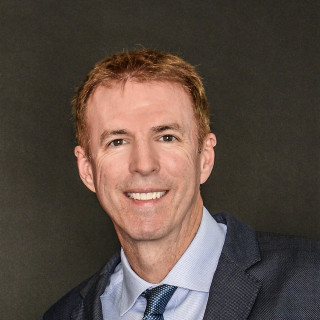
At the risk of sounding immodest, I have always considered myself to be a good doctor. I trained at a great institution with wonderful mentors. I care about my patients and take extra time to hear their stories and explain the options in ways that help them make decisions based on their values and preferences. But one day, a conversation with a patient made me realize that I wasn’t as good of a doctor as I need to be.
John’s Story
John was a patient whom I was seeing about 10 years ago. In his mid-40s, by most measures he was a success; CEO of a large, international business, happy family life, financially secure, but unfortunately his health was not so good. He was overweight, sedentary and described his stress level as “through the roof.” His blood pressure and cholesterol numbers were high and he was on the verge of being diabetic.
John and I met every 3–6 months and had developed a good relationship over time, but despite our frequent visits his health and numbers weren’t improving. At each visit, we would discuss how important more physical activity, eating better and losing a few pounds would be for his future health. John would agree and leave the office enthusiastic about getting healthier.
But at our next visit, he was right back where he started.
During one visit, John made a seemingly passing comment that completely changed my idea of how I wanted to practice medicine. And the responsibility I had to my patients.
What he said was, “I wish I could see you every week.”
At first, the statement took me by surprise because I thought our visits weren’t particularly productive. John then explained that after a visit he was motivated to do the things that he should do — that he wanted to do — for his health. For a week or 2 he would do well, but eventually he would lose focus and revert to his old habits.
John asked if there was a program that could keep him on track. I suggested several, Weight Watchers, joining a gym, hiring a personal trainer. His response?
“Yes, I’ve tried those, but they aren’t my doctor.”
A Physician’s Responsibility
As John’s cardiologist, I thought helping him make better lifestyle choices wasn’t my role. I wasn’t trained in behavior change and thought there were others who could do that job better.
Yet he was telling me that I was the best person to help him.
Over the years, it has become clear to me that I had it all wrong. While I thought he was failing me because he wasn’t doing the things he needed to do, the truth was it was me who was failing him. He was coming to me with his biggest health problem and I was telling him what he should do.
What he needed was to be shown how.
The Biggest Problem in Healthcare
Chronic, lifestyle related diseases like diabetes, high blood pressure and obesity are the biggest problems in healthcare. Chronic disease affects more than ½ of all adults and 87% of healthcare dollars ($3.3 trillion!) are spent on those with chronic disease.
For many of these diseases, the best treatment is lifestyle change. Yet the majority of physicians have limited options to help their patients make healthier choices. The result is that we don’t effectively address the most common health problems our patients have.
And as healthcare providers. That’s unacceptable.
The Future of Medicine? Maybe it’s Engagement
So where do we go from here? I believe an important step is to recognize that we, as healthcare providers, are in a unique position to help our patients. For one thing, we don’t need a marketing strategy to capture their attention. They are already coming to us looking for solutions to their problems. We also have inherent advantages in solving one of the biggest challenges in promoting behavior change which is engagement. Engagement is driven by several things but two of the most powerful are credibility and relationship, which are 2 of our strengths as healthcare providers.
The future of medicine may be less about diagnosis and treatment and more about engaging and behavior change. As future payment models evolve towards value-based reimbursement, hopefully there will be new models of care that are more effective for our patients with chronic illness. Models that provide the frequent touch between visits that is needed, likely using a team-based model of care, technology and science of behavior change.
As a cardiologist, I used to think that lifestyle modification was someone else’s job. I had more important things to worry about.
Today, I realize how wrong I was. I wish I would have known that when I was seeing John.
R. Todd Hurst, MD, FACC, FASE is a board-certified cardiologist, Center Director for Cardiovascular Health and Associate Professor of Medicine at the University of Arizona/Banner University Medical Center-Phoenix. Dr, Hurst spent 12 years at Mayo Clinic Arizona as an Associate Professor of Medicine in the Mayo Clinic School of Medicine, Founding Director of the Heart Health and Performance Program, and the Carla J. and Russell P. Paonessa Chair, Wellness and Health Education. He has over 50 publications in peer-reviewed journals and regularly speaks nationally and internationally at medical meetings, primarily on the prevention of heart disease. You can read more from Dr. Hurst on his website.






